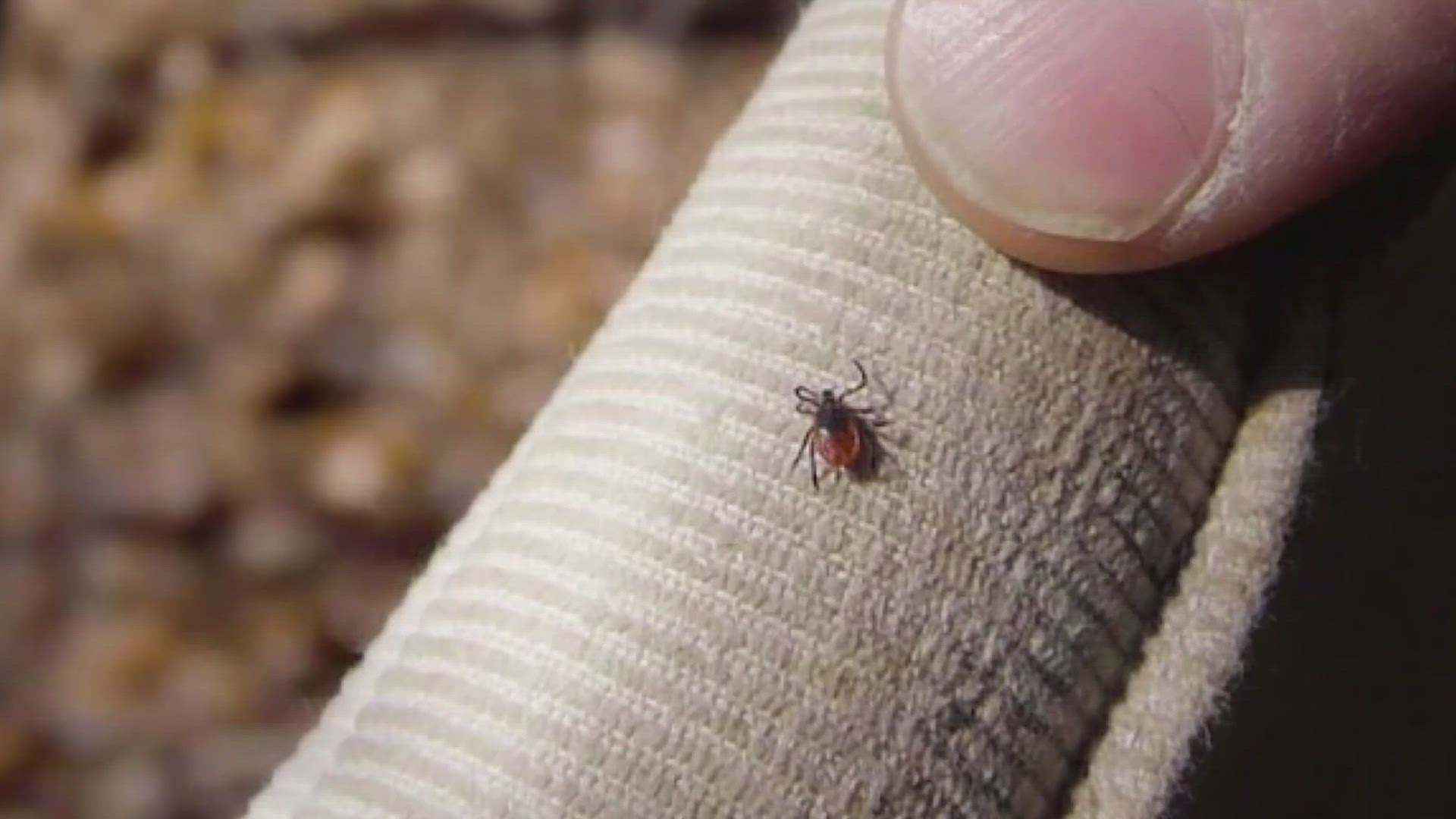BANGOR, Maine — It's a tickborne illness that has become increasingly more common. But unlike Lyme, it can be fatal and can impact others with long-term neurological problems.
The Maine Center for Disease Control and Prevention has reported three cases of Powassan, so far this year, including one death of an 81-year-old York County man.
A woman from Carmel who has survived the virus is sharing her story to help raise awareness and push for early detection.
Megan Sommers was working in 2018 as a licensed veterinary technician in Portland when she contracted what she thought was the flu. However, her symptoms drastically changed.
"[I would experience] severe migraines that I had never had before that I would lose vision," Sommers described.
She also had severe muscle spasms, numbness and tingling, profound fatigue, and partial seizures. She went from doctor to doctor. A blood test was negative for Lyme. Later, she was diagnosed with anxiety and fibromyalgia, a condition that causes widespread musculoskeletal pain, accompanied by fatigue, sleep, memory, and mood issues. Three years later, she hit rock bottom.
"I was essentially bedridden. I couldn't work anymore," Sommers recalled.
She found a naturopathic doctor who ran a full blood panel for tickborne diseases. The panel came back positive for Lyme and the Powassan virus. After rounds of antibiotics, anti-parasitic medications, herbal remedies, and changes to diet, her health began to improve.
According to the U.S. Centers for Disease Control and Prevention, some patients don't experience any symptoms, while others have a mild course of the illness. In some cases, people can experience life-threatening complications that affect the brain or nervous system. One in 10 cases is fatal.
"If you have inflammation in your nervous system, it can spread to every other organ system in your body," Megan said.
Dr. Scott Melton specializes in infectious diseases at Northern Light Infectious Disease Care. Melton said no treatment is available to cure the Powassan virus, though doctors may treat symptoms of the illness.
"[Symptoms like] fevers, chills that aren't responding to typical treatments, getting a lumbar puncture, and the spinal fluid can help confirm the diagnosis," Melton explained.
Melton also said avoiding deer ticks or woodchuck ticks that carry the Powassan virus can reduce your risk.
Megan is working on getting a nutrition certification in the hopes of helping others struggling with tickborne illness.
"I am lucky and grateful I survived the infection," Megan added.
She said she hopes that speaking out will help other patients struggling to get a diagnosis and keep Powassan on the radar of more providers.
"The more recognition it gets, the more likely it is to be caught early in many patients," Megan said.

